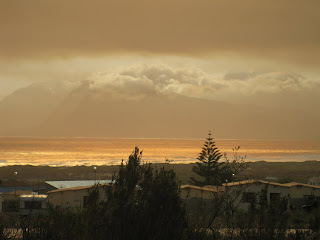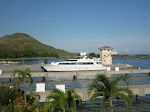


90 minutes from Cape Town lies an intoxicating and scenic town stretched along the coastline, hugging the sea, and hemmed in by the steep mountains. Hermanus has 70,000 inhabitants with 18,000 of whom live in the township (underdeveloped slum-like area) of Zwelihle.
Hermanus has a fantastically rich history dating back to the beginning of the 1800’s.
Hermanus Pieters is credited with first finding Hermanus. He arrived in Cape Town in 1815, as a teacher and shepherd, and trekked eastwards with the first ox-wagons to Caledon, where farming was the major industry. During the summer months, he started herding his flocks of sheep and cattle from Caledon in the 1820’s, down the “Elephant Pass”, now known as the Hemel-en-Aarde valley, down to the coast, where he found good grazing and fresh water.
Hermanus Pieters did this each year and word fast got around the farming community that he had discovered good new summer grazing land. Many others started to follow him down the valley to seek lush pastures for their livestock, as well as fishermen, who found that the sea was teaming with fish and the farming families who wished to come to enjoy this new spot during the school summer holidays.
From then on, the area was named Hermanuspietersfontein, which slowly started to grow into a permanent settlement. Today there is a new stairway and walkway that is situated at the exact location where the fresh water waterfall was discovered by Hermanus Pieters.
In 1902 the postmaster decided to shorten the name to just Hermanus and the village received official municipality status in 1904.
Word spread internationally too, with Harley Street doctors in London, prescribing Hermanus as an ideal location for rest and recuperation with its “champagne air”. A sanatorium was erected over-looking Walker Bay to cater for those in need of such natural, holistic medicine.
As for our visit, it was truly one of the most beautiful places I've seen, filled with lovely people, fantastic restaurants, and heavenly wineries. If you are an adventure seeker, there is also shark cage diving and whale watching. For the oenophiles, grapes grown in the Hemel-en-Aarde Valley are influenced by the cold Atlantic Ocean and the temperate conditions, and the clay-like soil produces wines similar to those of Northern France. And, better yet, tastings are free of charge.
Gesondheid! (Cheers in Afrikaans)





No comments:
Post a Comment